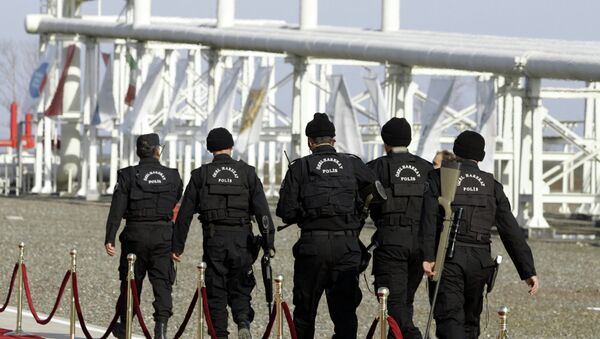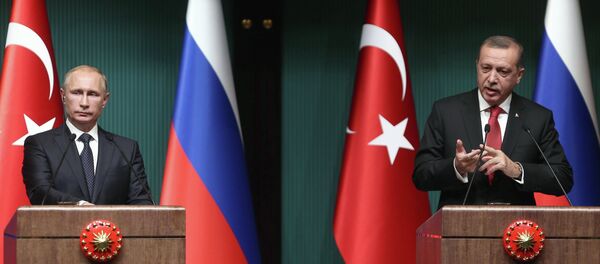Sezer believes that the return of relations between Turkey and Russia to a pre-crisis level will require a lot of time. However, contacts in such areas as energy and tourism can be established in a short term perspective.
"I think that the process of restoring mutual sympathy between the two nations to a pre-crisis level will take considerable time, but economic cooperation in areas such as energy and tourism, could be built in a short term perspective," the expert said.
Sezer argues that countries will also further develop cooperation in the energy sector. Moreover, he believes that mutual interest in the field of energy was one of the factors that drove countries to resolve their crisis.
"Especially I would like to note that interests in the field of energy might have accelerated the peace process and resolution of the crisis between the two countries. The prospects of potential cooperation in the energy sector are likely to have pushed the parties to dialogue," the expert argued.
According to him, there will be no surprise if such a large project as the Turkish stream will also be revived and implemented in the near future.
"I think that this issue will be discussed during the negotiations between the parties to develop a corresponding package deal," Sezer concluded.
Turkish-Russian relations deteriorated after a Turkish F-16 fighter shot down a Russian Su-24 combat jet near the Turkish border in Syria on November 24, 2015. Following the incident, Russia imposed sanctions against Ankara. They affected a number of joint projects between Ankara and Moscow as well as the energy, trade, investment and especially the tourism industry.
Earlier, Russian President Vladimir Putin and his Turkish counterpart Recep Tayyip Erdogan agreed to lift travel sanctions, which have negatively affected the Turkish tourism sector and the country's economy as a whole. The move followed a letter of the Turkish leader in which he apologized for the incident with the downed plane.


